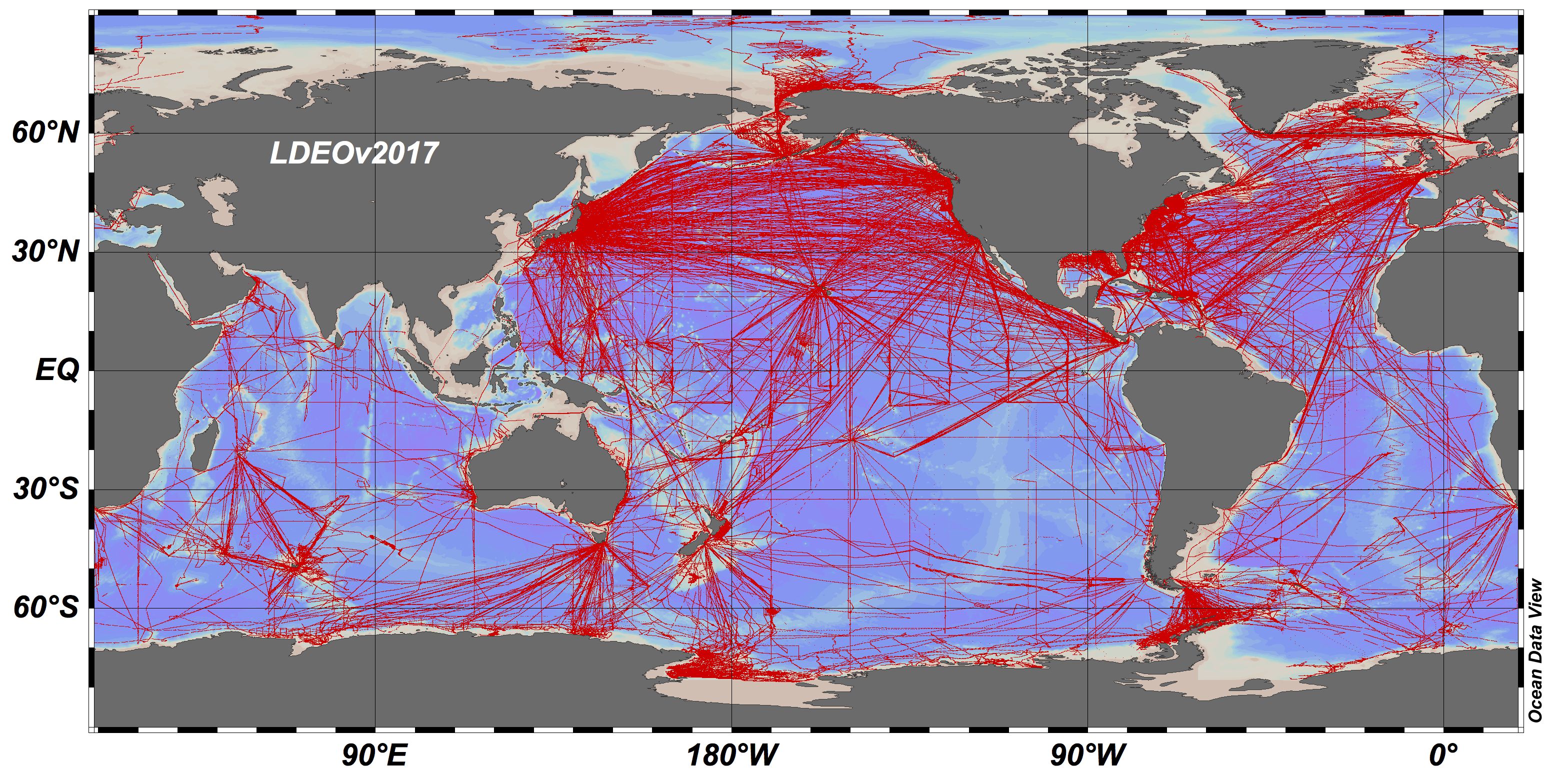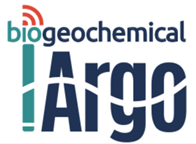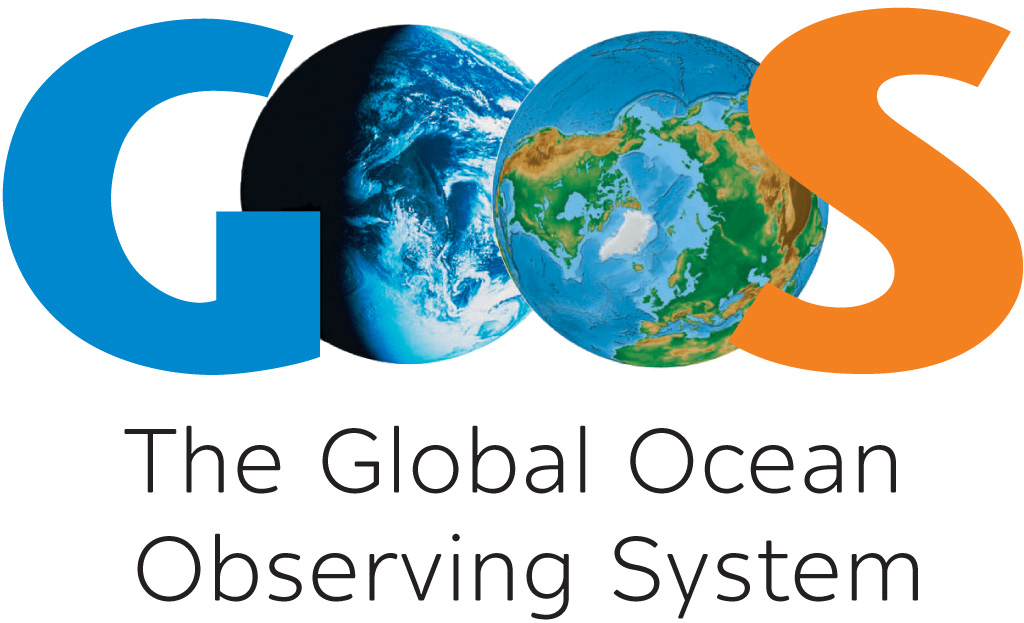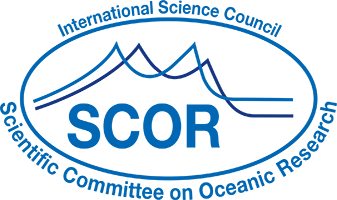News
+ more news
New IOCCP co-Chair: Kim Currie takes over from Toste Tanhua
Tuesday, 20 March 2018
We are excited to inform you that Kim Currie (NIWA, New Zealand) has joined Masao Ishii at the helm of the IOCCP SSG. In her day job, Kim is a scientist with NIWA and University of Otago in New Zealand, with a focus on marine carbon chemistry. She is responsible for surface ocean carbon programmes and coastal ocean acidification observations in New Zealand, and is actively involved in a number of globally coordinated activities such as SOCAT, GOA-ON and IOCCP. You will have a chance to learn more about Kim and her take on her new role from the next issue of the IOCCP Conveyor which will be published before Easter. We are confident that IOCCP leadership is now in very capable hands as we march on our road towards sustained marine biogeochemistry observations.
We would like to take this opportunity to publicly thank Toste Tanhua from whom Kim has taken over the IOCCP co-Chairmanship. Toste has enriched IOCCP with his dedicated service for the past decade and we are very grateful for his pro-active attitude and visionary leadership which benefited marine biogeochemistry and ocean observing in general. We are happy to let you know that Toste will continue his community service in his new role as co-Chair of GOOS.

Ocean Observations Panel for Climate (OOPC) Communiqué regarding Boundary Currents and Shelf Sea Interactions
Thursday, 15 March 2018
On behalf of the Ocean Observations Panel for Physics and Climate (OOPC), an expert panel of the Global Ocean Observing System (GOOS) and the World Climate Research Program (WCRP), we would like to point your attention to a ![]() Communiqué regarding Boundary Currents and Shelf Sea Interactions. To provide guidance to GOOS in its advocacy for a coordinated international approach to sustained coastal observing to complement the global network, OOPC is asking ocean observing and prediction communities to help develop strategies to meet the emerging needs for coastal ocean knowledge by establishing a Task Team on Boundary Currents and Shelf Sea Interactions. The purpose of the Communiqué is to invite input on framing the priorities and objectives of the Task Team, and to seek expressions of interest in participating directly in Task Team activities.
Communiqué regarding Boundary Currents and Shelf Sea Interactions. To provide guidance to GOOS in its advocacy for a coordinated international approach to sustained coastal observing to complement the global network, OOPC is asking ocean observing and prediction communities to help develop strategies to meet the emerging needs for coastal ocean knowledge by establishing a Task Team on Boundary Currents and Shelf Sea Interactions. The purpose of the Communiqué is to invite input on framing the priorities and objectives of the Task Team, and to seek expressions of interest in participating directly in Task Team activities.
Please consider the document, and respond if possible, by March 31, 2018. If you have any questions, please don't hesitate to contact This email address is being protected from spambots. You need JavaScript enabled to view it..

2018 Call for POGO-SCOR Visiting Fellows
Thursday, 22 February 2018
The Partnership for Observation of the Global Oceans (POGO) and Scientific Committee on Oceanic Research (SCOR) are pleased to announce that the POGO-SCOR Visiting Fellowship programme for 2018 is now open for applications. The program is designed to promote training and capacity building leading towards a global observation system for the ocean, and is aimed at scientists, technicians, graduate students (preferably PhD) and post-doctoral fellows involved in oceanographic work at centres in developing countries and countries with economies in transition.
The deadline for applications is 9 April 2018.

2018 Call for SCOR Working Group Proposals
Monday, 19 February 2018
The Scientific Committee on Oceanic Research (SCOR) is now accepting proposals for new SCOR working groups. Proposals are due by 12:00 p.m. UCT on 16 April 2018. Proposals will be posted after that time on the 2018 SCOR annual meeting Website and open to review by national SCOR committees and others until 1 August 2018. Decisions about which proposals will be funded will be made at the annual SCOR meeting on 4-6 September 2018 in Plymouth, UK, and new groups will start in 2019. Please submit your proposals to the This email address is being protected from spambots. You need JavaScript enabled to view it..
Attached please find the ![]() 2018 Call for SCOR Working Groups.
2018 Call for SCOR Working Groups.

LDEOv2017 global surface water pCO2 database published at NCEI
Thursday, 15 February 2018
We would like to let you know that the new LDEOv2017 Database was published at OCADS NCEI: https://www.nodc.noaa.gov/ocads/oceans/LDEO_Underway_Database/. Approximately 13.0 million measurements of surface water pCO2 made over the global oceans during 1957-2017 have been processed to make a uniform data file in this Version 2017. Measurements made in open oceans as well as in coastal waters are included. The data assembled include only those measured using equilibrator-CO2 analyzer systems, and have been quality-controlled based upon the stability of the system performance, the reliability of calibrations for CO2 analysis and the internal consistency of data.
LDEOv2017 should be cited as: Takahashi, T.; Sutherland, S.C.; Kozyr, A. (2018). Global Ocean Surface Water Partial Pressure of CO2 Database: Measurements Performed During 1957-2017 (LDEO Database Version 2017) (NCEI Accession 0160492). Version 4.4. NOAA National Centers for Environmental Information. Dataset. doi:10.3334/CDIAC/OTG.NDP088(V2015) [access date].

TPOS 2020 workshop on Bridging Sustained Observations & Data Assimilation, May 1-3, 2018, Boulder, CO, USA
Tuesday, 13 February 2018
The Tropical Pacific Observing System (TPOS 2020) project is a broad community effort to rethink and redesign the next-generation sustained observing system in the tropical Pacific. Gaining full benefit from our diverse assemblage of in situ instruments, with increasing satellite capabilities, requires integration through data assimilation in process-realistic Earth system models. In order to foster the communication and collaboration among the observational, modeling, and data assimilation communities, a workshop on Bridging Sustained Observations & Data Assimilation for TPOS 2020 is being held on May, 1-3, 2018 in Boulder, CO, USA. Results of the workshop will identify feasible and fundable recommendations, including process studies, that would advance the development of model parameterizations and data assimilation techniques so the tropical Pacific observing system can meet the needs of monitoring, prediction, and research for the next decades.
Applications & abstract submission close on February 23, 2018.

Biogeochemical-Argo program Newsletter #4
Friday, 09 February 2018
We would like to let you know that the Biogeochemical-Argo program has issued its 4th Newsletter which summarizes the program highlights and coming events. In this issue you can learn about new Scientific Steering Committee members appointed, the successful test of the first profiling float measuring simultaneously all 6 core variables (supported by the EU AtlantOS project), reports from regional float deployments, or a featured BGC-Argo article on "Ocean hotspots of nitrogen loss" published in Nature, among other news.
You can subscribe to receive future issues of the Biogeochemical-Argo newsletter via this link.

Gordon Research Conference on Ocean Biogeochemistry, July 2018, Hong Kong, China
Wednesday, 07 February 2018
We would like to inform you that the next Gordon Research Conference (GRC) on Ocean Biogeochemistry will be held in Hong Kong on 8-13 July 2018. There will also be an associated Gordon Research Seminar (GRS) on Ocean Biogeochemistry for early-career researchers on 7-8 July. The topic of the 2018 GRC and GRS will be Biogeochemistry of Marine Interfaces. Oral and poster presentations and discussions will address, without being limited to, biogeochemical fluxes between the atmosphere and the ocean; between the surface, intermediate, and deep waters; and between the deep ocean, the seafloor and the sub-seafloor. Socio-economic aspects will also be considered.
Registration opens on February 9 and applications close on 10 June 2018, but you are invited to apply early due to a maximum of 200 participants accepted.

New Ocean Training Partnership (OTP) website is now ‘live’
Friday, 02 February 2018
We want to inform you that the new Ocean Training Partnership (OTP) website is now 'live' at www.oceantrainingpartnership.org. The OTP is an international alliance of marine science organisations that coordinates shipboard training experiences. The current partners are now inviting institutions with spare capacity on research vessels, or Principal Investigators with spare berths on a planned research cruise, to get involved with this capacity-building project. Using funding from the Nippon Foundation, this initiative, which is led by the Partnership for Observation of the Global Oceans (POGO) in collaboration with the Strategic Marine Alliance for Research and Training (SMART) and the Alfred Wegener Institute Helmholtz Centre for Polar and Marine Research (AWI), will provide grants to support training cruises, and fellowships for early-career scientists is developing countries. In addition to the new website, the OTP is spreading the word via its twitter account (@ocean_training), and the POGO social media channels. Feel free to re-share these messages where appropriate to foster global efforts of the Ocean Capacity Building community.

All you want to know and wonder who to ask about OceanObs'19 - GOOS webinar, 29 Jan, 20h UTC
Wednesday, 24 January 2018
We would like to invite you to the upcoming Global Ocean Observing System (GOOS) webinar on "OceanObs'19 – An Ocean of Opportunity" scheduled for 29 January, at 20:00 GMT/UTC. The webinar will be presented by an OceanObs'19 Program Committee Co-Chair Sanae Chiba (Japan Agency for Marine-Earth Science and Technology (JAMSTEC) and UN Environment World Conservation Monitoring Centre).
The IOCCP promotes the development of a global network of ocean carbon observations for research through technical coordination and communication services, international agreements on standards and methods, and advocacy and links to the global observing systems. The IOCCP is co-sponsored by the Scientific Committee on Oceanic Research and the Intergovernmental Oceanographic Commission of UNESCO. Read more…
Calendar
|
|
IOCCP meetings, IOCCP-related meetings as well as events related to a wider scope in marine biogeochemistry. |





 Please wait...
Please wait...